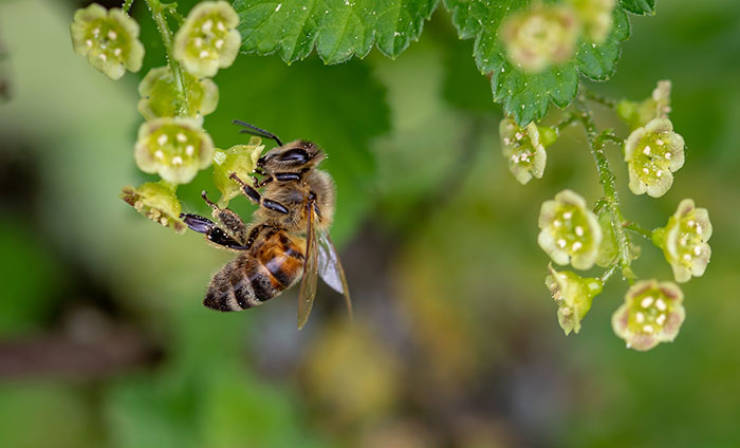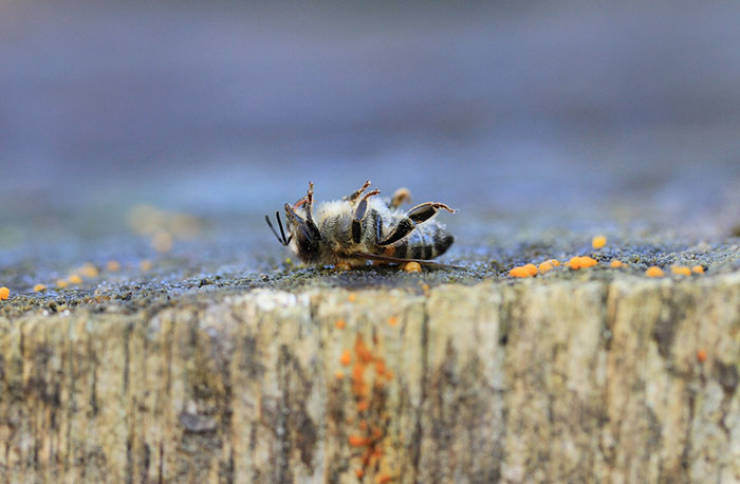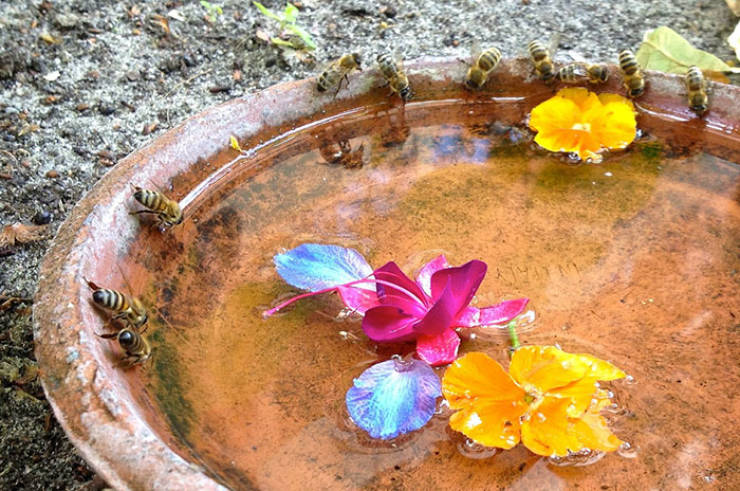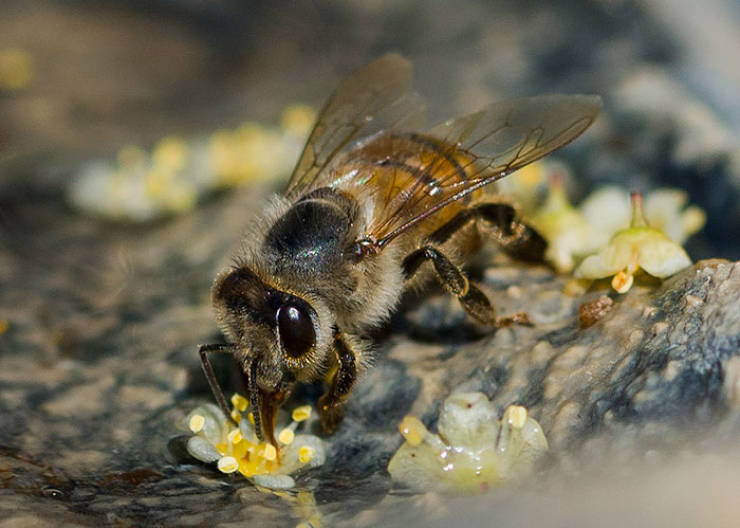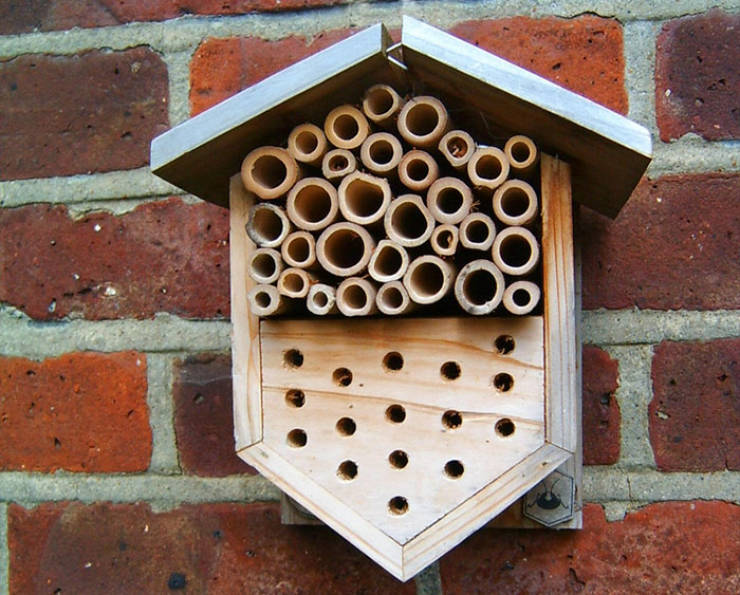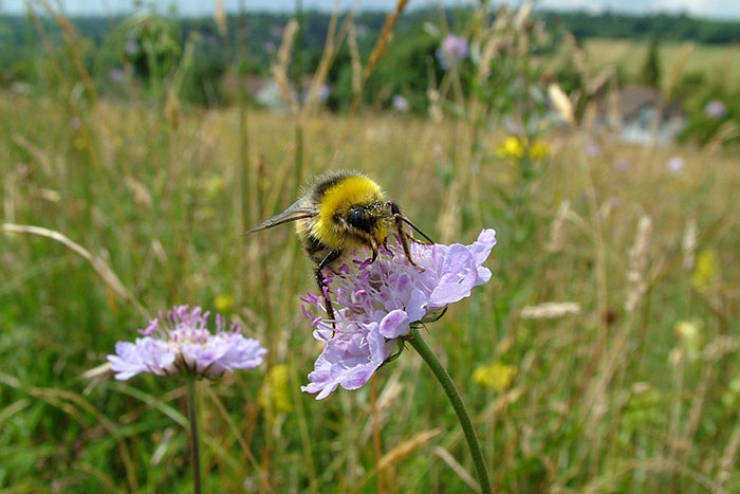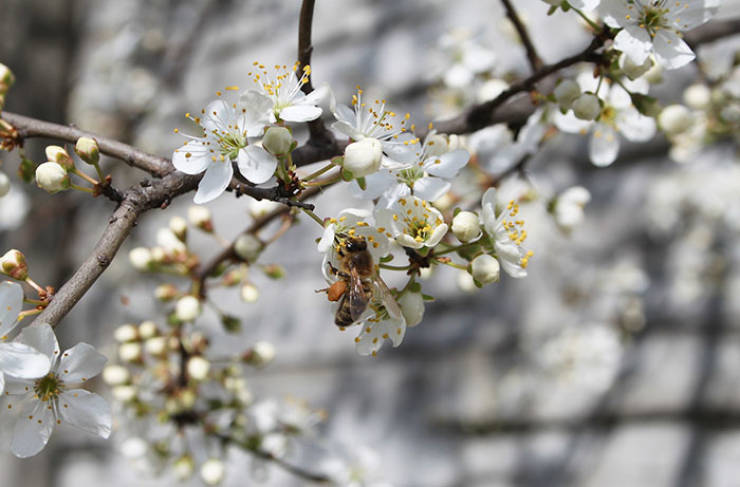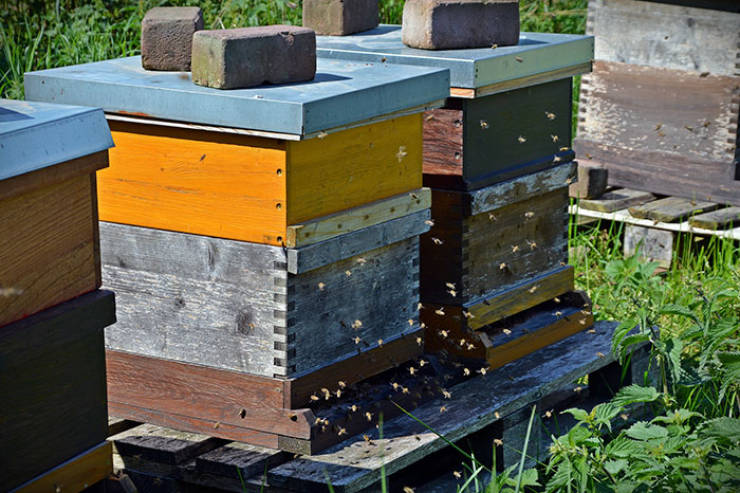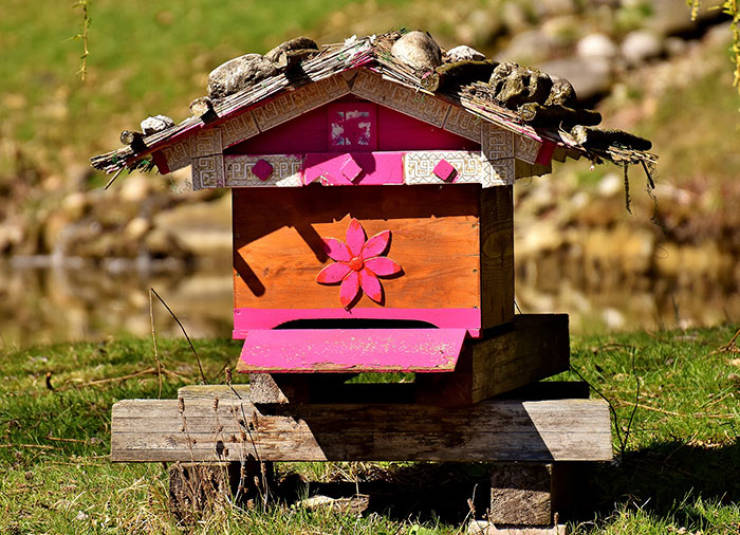Protect bee habitat
One of the threats to our bees is reducing habitat. We all can help bees in urban spaces by creating more gardens, green areas and habitat corridors with nectar-rich plants such as wildflowers. And if you think that they require huge fields full of flowers, that is not true! Green spaces can be established on street corners, balconies, while flowers can be planted along roadways. If you want to take a step further, you can get involved with the local government to advocate sensible solutions to the expanding urban areas.
Avoid harmful pesticides
Synthetic pesticides, fertilizers, and herbicides are some of the dangers that bees face. Avoid using pesticides in your garden and if you must treat your garden, go for organic options and spray at night since pollinators are least active at that time. You can also use beneficial insects such as praying mantises and ladybugs to help you out in the garden. “Avoid chemicals belonging to the neonicotinoid family at all costs, as they are especially harmful to bees” The Honeybee Conservancy page notes.
Create a Bee Bath
You can fill a shallow dish or container with clean water and add some pebbles and stones inside so that they poke out of the water. This will be a perfect retreat for the bees to drink and rest as they take a break from foraging and pollinating.
Don’t feed bees sugar water
After someone on Facebook shared a ‘tip’ that everyone who sees an ‘exhausted’ bee should feed them a little water, some people took it a step further and started leaving bowls of water mixed with sugar to ‘help out’ the little pollinators. Well, turns out that it’s not only not helping them out, it’s actually doing harm. Beekepers warn that bees tend to take shortcuts so finding a platter full of sugar will be much easier than foraging from plants. This leads to bees bringing the sugar to their hives for storage which results in watered down honey. And no one wants that. Besides, leaving sweet water in your garden might attract all sorts of animals, wanted or not.
Build homes for solitary and bumble bees
Even though it is a common knowledge that bees live in a hive, it’s only really honeybess that do. Most of the types of bees are solitary creatures with 70% of bees living underground and 30% living in holes inside of trees or hollow stems. You can buy a “Bee condo” or “Bee hotel” online or build one of your own to help create some living spaces for those lone insects. After all, even if they won’t bring you honey, the little bees pollinate surrounding plants!
Plant a bee-friendly garden
You can help out bees by planting a bee-friendly garden and providing them a place to rest, pollinate and forage. Some helpful tips offered by The Honeybee Conservancy include:
• Avoid hybrid flowers, which may be sterile and have little or no nectar or pollen
• Skip the double flowers, which lack pollen
• Make sure you’ll have blooms for bees year round.
• Plant flowers in patches – bees like to focus on one flower type at a time
• Leave an undisturbed plot for ground-nesting bees
Plant trees
I bet we all imagine bees flying around in the garden, sitting on a lone sunflower or digging between the petals of a rose. But bees love trees just as much as perennials! In fact, bees get most of their nectar from trees! They’re not only an excellent source of food, but a great habitat. “Tree leaves and resin provide nesting material for bees, while their natural wood cavities make excellent shelters” The Honeybee Conservancy page explains. While deforestation problem is still relevant, you can do your part by caring for and planting trees and joining communities with similar interest in tree preservaton!
Support your local beekeeper
One way to help the bees out is to start a honeybee hive, however, not all of us have the means and space for it. A good alternative to that would be supporting a local beekeeper. They work hard to look after and nurture their bees and their efforts help out both, the bees and people around! Best way to support beekeepers is to buy their produce. Most will have honey and beeswax products to sell, however, there are some who create soaps, lotions, and beeswax candles. And if you buy honey locally, chances are that bees collected from your flowers!
Sponsor a Hive
Another choice for those who can’t afford to start their own hive is to sponsor initiatives that build hives. The Honeybee Conservancy is working to install stocked honeybee hives and solitary bee homes in communities across the United States. You can help them out by donating or looking for organizations around with similar initiatives. “By sponsoring a hive, you aren’t only helping to save the bees, but to improve communities across the country”

